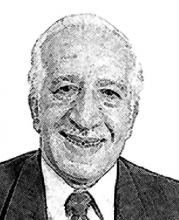As masters in the game of chess, the Iranians managed to expand their influence into more than one pivotal area in this region.
They have secured for themselves, with Russian backing, a seat at the forthcoming round of talks, which is supposed to take place this week to put the final touches on a peaceful solution to the Syrian civil war, with or without Bashar Assad as president.
Such participation will grant Tehran a stronger contribution to formulating the future policies, not only in Damascus, but in Beirut as well, since Hizbollah maintains hegemony on Lebanese politics through its armed militia and strong economic investments.
Iran was excluded from Geneva I talks, but its envoys shared the same negotiating perspectives, and the same agenda, simultaneously but furtively in Berne, rather than in Montreux where the world television cameras were rolling.
The Berne meetings with representatives of the same superpowers proved to be more substantial, and productive, than the overt Montreux talks, which led nowhere and could not even save the civilians trapped in Homs.
Last week, Iranians got full membership in the Jerusalem Committee headed by Moroccan King Mohammed VI. Since the holy city is the core of the Palestinian-Israeli conflict, that membership means Tehran has secured for itself a permanent say in all future agreements within the framework of a final solution to the Arab-Israeli conflict.
This new role will compensate the Iranians for having been excluded from any future administrative role in the custodianship of the holy basin, as proposed by US Secretary of State John Kerry’s tentative framework agreements between Israeli Prime Minister Benjamin Netanyahu and Palestinian President Mahmoud Abbas.
Even in Palestine, Tehran managed to forge a strong link with the Islamic Jihad movement, with its nearly 20,000 fighters in Gaza Strip alone, trained by Iranian officers in Lebanese camps and funded by the Zakat fund.
Sheikh Abdel Aziz Odeh and Ramadan Abdullah Shallah, both of the higher echelons within Islamic Jihad, openly admitted their identification with Iran’s policy on Palestine. Both boasted about having been trained and funded by the Iranian embassy in Beirut.
The multi-dimensional aspects of Tehran’s influence in the region could not be more manifest than in Iraq, where the Iranian ambassador is more of a high commissioner whose favours and support many political figures and religious ayatollahs beg.
Even some Sunni factions resorted to the Iranian ambassador to ask for restitution of some of their political privileges.













